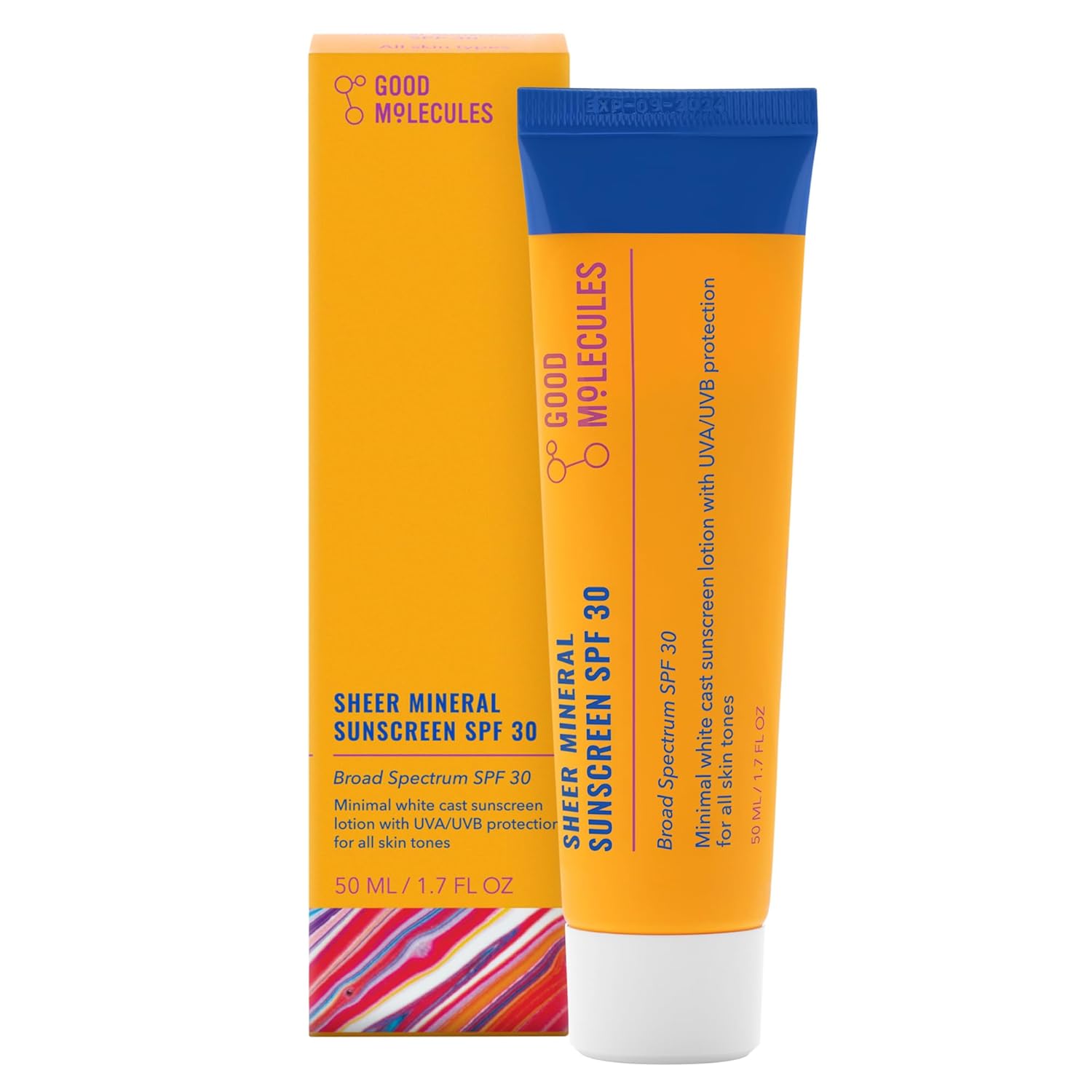Price: $11.99
(as of Apr 03, 2025 20:25:21 UTC - Details)

The Best Sunscreen for Face: Your Ultimate Guide to Sun Protection
Introduction
When it comes to skincare, one of the most crucial steps is using sunscreen, especially for your face. The right sunscreen not only protects your skin from harmful UV rays but also helps prevent premature aging and skin damage. In this guide, we’ll explore the best sunscreens for your face, focusing on different needs and preferences. Whether you’re looking for something lightweight, hydrating, or suitable for sensitive skin, we’ve got you covered. Let's dive into the world of sun protection and discover the best sunscreen for your face!
Understanding SPF: What’s Right for You?
One of the most important factors to consider when choosing a sunscreen is the SPF (Sun Protection Factor). The SPF indicates how well a sunscreen can protect your skin from UVB rays, which are responsible for sunburn.
How to Choose the Right SPF
For daily use, an SPF of 30 is typically recommended. If you spend a lot of time outdoors or are prone to sunburn, consider a higher SPF. Remember, no sunscreen can block 100% of UV rays, so it's essential to apply it generously and reapply every two hours, especially if you're swimming or sweating.
Lightweight Sunscreens: Perfect for Daily Use
If you’re looking for a sunscreen that won’t weigh your skin down, lightweight options are the way to go. These formulations absorb quickly and leave no greasy residue, making them ideal for everyday wear.
Why Choose a Lightweight Formula?
Lightweight sunscreens are perfect for those who want sun protection without the heavy feel of traditional creams. They often come in gel or fluid formulations, making them easy to layer under makeup. Look for products labeled “oil-free” or “non-comedogenic” to ensure they won't clog your pores.
Hydrating Sunscreens: Moisture Meets Protection
For those with dry skin, hydrating sunscreens are a must-have. These products not only shield your skin from the sun but also provide added moisture, keeping your complexion looking fresh and dewy.
Key Ingredients to Look For
When selecting a hydrating sunscreen, check for ingredients like hyaluronic acid, glycerin, and aloe vera. These components help lock in moisture and soothe the skin, making them perfect for individuals with dry or sensitive skin types.
Mineral vs. Chemical Sunscreens: What’s the Difference?
Understanding the difference between mineral and chemical sunscreens can help you make an informed choice.
Mineral Sunscreens
Mineral sunscreens, also known as physical sunscreens, contain active ingredients like zinc oxide or titanium dioxide. They work by sitting on top of the skin and deflecting UV rays. They’re often recommended for sensitive skin since they’re less likely to cause irritation.
Chemical Sunscreens
Chemical sunscreens absorb UV rays and convert them into heat, which is then released from the skin. These sunscreens often have a lighter texture and are easier to apply. However, some people may be sensitive to the synthetic ingredients used in these products.
Sunscreens for Sensitive Skin: Gentle Protection
If you have sensitive skin, finding the right sunscreen can be a challenge. You want something that protects without causing irritation or breakouts.
Tips for Choosing Sensitive Skin Sunscreens
Look for sunscreens that are labeled as hypoallergenic and fragrance-free. Ingredients like zinc oxide and titanium dioxide are often gentler and less likely to irritate sensitive skin. Always patch-test a new product to ensure it doesn't cause a reaction.
Sunscreens with Anti-Aging Benefits
Many sunscreens now come with added anti-aging properties. These products not only protect against UV rays but also help combat signs of aging such as fine lines and dark spots.
What to Look For
Choose sunscreens that contain antioxidants like vitamins C and E, which can help neutralize free radicals and reduce skin damage. Some formulations also include peptides and retinol, which can promote skin renewal and improve texture.
Reef-Safe Sunscreens: Protecting Our Oceans
As awareness grows about the impact of certain sunscreen ingredients on marine life, many consumers are looking for reef-safe options.
Why Choose Reef-Safe Sunscreen?
Reef-safe sunscreens avoid harmful chemicals like oxybenzone and octinoxate, which have been shown to damage coral reefs. By choosing a reef-safe product, you can enjoy your time in the sun while helping to protect our oceans.
Conclusion
Choosing the best sunscreen for your face is essential for maintaining healthy skin and preventing damage caused by the sun. Whether you prefer a lightweight formula, a hydrating option, or something specially formulated for sensitive skin, there is a sunscreen out there that meets your needs. Remember to look for the right SPF, consider your skin type, and opt for products that align with your values, like reef-safe options. By making informed choices, you can enjoy the sun while keeping your skin protected and glowing. So go ahead, find your perfect sunscreen and make it a part of your daily skincare routine!
SHEER, WEIGHTLESS SUNSCREEN: This minimal white cast, fast-absorbing formula layers well with skincare and makeup while still providing powerful protection! Feel confident that you are giving your skin the best with the Good Molecules Sheer Mineral Sunscreen.
HYDRATE, NOURISH, AND PROTECT: This sunscreen does it all! Not only does it protect against sun damage it also contains grapeseed oil and tucuma seed butter to moisturize and hyaluronic acid to encourage deep and lasting hydration!
POTENT INGREDIENTS FOR HEALTHY SKIN: Our lightweight formula contains 13.3% zinc oxide to protect the skin from UVA and UVB rays that can cause lasting damage and increase the visible signs of aging.
PROTECT YOUR SKIN EVERYWHERE YOU GO: This sunscreen is easy to use and take with you on the go! Apply liberally 15 minutes before sun exposure. We recommend reapplying at least every 2 hours.
SUITABLE FOR ALL SKIN TYPES AND TONES: This non-greasy sunscreen is made to suit all skin tones and types; it is potent enough to be effective but gentle and lightweight enough not to cause irritation or clog pores. Our sunscreen is vegan and reef safe.
